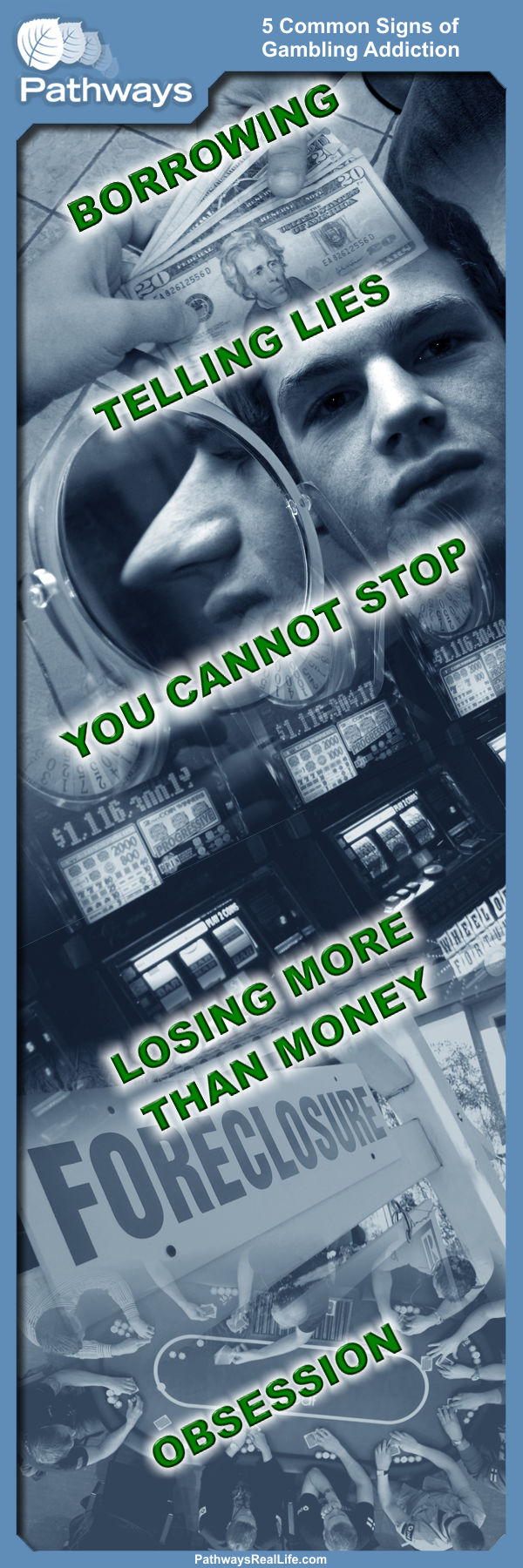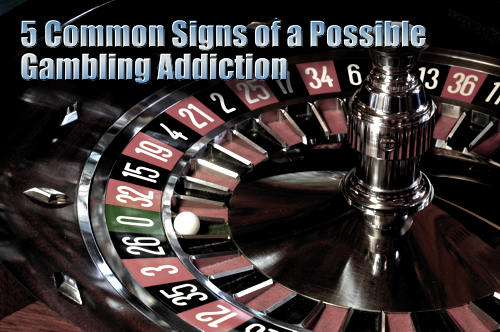A gambling addiction is also known as pathological gambling, and refers to a person's inability to resist the impulse to gamble. Pathological gambling can often lead to serious financial consequences and have negative social repercussions. If you or a loved one is struggling with gambling, read on for more information about these five common signs of a potential gambling addiction, and seek therapy immediately.
1. Borrowing Money
One of the most telling signs of a person who's struggling with a possible gambling addiction is his or her need to constantly borrow money. Usually, gambling has wreaked financial havoc on a person who's addicted to gambling, and therefore he has no money to either pay bills, pay for basic necessities, or to continue gambling. Sometimes, borrowing money can get so out of control that a person will max out their credit cards, accumulate massive levels of debt, or even take out a second mortgage on their home.
2. Telling Lies
While a person with a gambling addiction isn't necessarily a pathological liar, there is a good chance that he's lying about his gambling habits. Those who gamble are often embarrassed about their addiction and the fact that they can't stop gambling, and therefore tell lies or make up stories about what they're spending their money on, where they were, or what activity they were doing. In some cases, gambling addicts will even commit and lie about crimes in order to get more money to feed their addiction.

3. Making Unsuccessful Attempts to Stop Gambling
If you, a friend, or a family member has tried to stop gambling but can't, there's a good chance that a gambling addiction is present. This attempt can be frustrating, and usually is associated with a feeling of irritability, mood swings, aggression, and feelings of sadness or anxiety. Most commonly, this attempt to stop gambling results in failure, where the person returns to gambling, sometimes even more rashly.
4. Experiencing Loss That's Not Financial
Those who are addicted to gambling lose money. But, they often lose friends, family members, or even their jobs, too. Impaired relationships with loved ones or missing out on a career or education opportunity because of gambling can be a sure sign of addiction. Sometimes, a person's addiction to gambling is so great that they can't pull themselves away from gambling to make it into work; other times, lying about gambling is so extreme that it causes a severe depression in the strength of a romantic relationship. In most cases, those who are addicted to gambling have some sort of relationship stress or loss.
5. Becoming Obsessed with Gambling
Addiction is more than a desire to do something to feel good; rather, it's an obsession that can't be stopped. If you or someone you know appears to be obsessed with gambling, a gambling addiction is probably present. When addiction is present, gambling becomes more than a good time. It consumes a person's every thought; causes a person to lie about their activities, commit crimes, or borrow money; and becomes a certain type of "high" that a person needs to get by. Essentially, gambling becomes the most important thing in the world for a person who's addicted to gambling. Additionally, when a person's addicted to gambling, he may feel as though he needs to gamble more to be satisfied. The cycle of win-loss becomes impossible to tear away from, and addicted gamblers find themselves in a downward spiral towards self-destruction.
Don't wait until your life is out of control to get help. Seek out gambling addiction treatment today.


